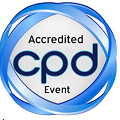Anabela Rebelo
Portuguese Environment Agency, Portugal
Title: Safety in Water Reuse – Semi-quantitative risk assessment approach for non-potable uses
Biography
Biography: Anabela Rebelo
Abstract
On a climate change scenario some alternative water sources are being used to face water scarcity and the increase for water demand. In this context, reclaimed wastewaters are considered a helpful resource for several potable and non-potable purposes, e.g., irrigation, urban or industrial use. However, this kind of uses may present some risks for public health due to its microbiological content and to the environment by the introduction of emergent pollutants (e.g. aquifer recharge). To ensure a safe practice, a risk assessment approach is needed. The World Health Organization published guidelines which defines qualitative and quantitative risk assessment procedures. The Quantitative Microbiological Risk Assessment (QMRA) is very helpful when potable uses and direct intakes may be present. However less attention has being paid for non-potable purposes and for which the dose-response effects are not well known or not determined. For instance, usually drip-irrigation is used on orchards production, where the water does not contact with the fruits and some of these are not also consumed with peel. So, the microbiological pathway from water to the fruit is not easily assessed. Therefore, the development of a semi-quantitative risk assessment methodologies, supported on important scales and in the water microbiological content could present a useful tool when water reuse is in place for non-potable uses, such as orchard drip-irrigation, processed food crops, non-food crops, etc. This kind of methodologies aims to deal with water reuse purposes for which the QMRA is not feasible and a qualitative assessment may give a poor result jeopardizing the public confidence in the practice.

